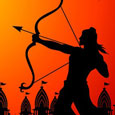Biography
| Martin Luther King. The name needs no introduction. The charismatic United States civil rights leader and Baptist minister who campaigned against the segregation of Blacks (1929-1968), King was a living legend of his time. Assassinated in April 4 1968, King lives on in our hearts and will continue to be so in the hearts of coming generations. TheHolidaySpot brings to you a great article on the life and works of King. Know about this dynamic personality. If you like our article, click here to refer it to your friends. |
| Back to Home | Martin Luther King Main | Biography | Free Wallpapers | Greeting cards | ||
| Activities | Meaning | When is Martin Luther King Day | Speech | Quiz | Quotes | |
|
One of the most symbolic leaders of American blacks,
an advocate of nonviolence and a world figure Martin Luther King was born on
15th January, 1929 in Atlanta, Georgia.
His parents taught him what would become an important part of his life - to treat everyone with respect. Martin's father worked hard to break down the racial barriers that plagued the then society. His father believed African-Americans should register their complaints by voting. However, his growing up years saw a marked difference between the blacks and whites- he saw that he and his white friends could not drink from the same water fountains and could not use the same restrooms. Martin’s best friend as a child was a white boy and just like all of us, they too had a blissful childhood. But when school beckoned they came face to face with reality-that even though they lived in the same locality, they could not go to the same school. His friend would go to a school for white children only and he was sent to a school for "black" children. Soon after, they were never allowed to play again. When Rev. King was ready for college he decided to follow his father’s footprints and become a minister. While attending the Crozer Theological seminary in Pennsylvania he became familiar with Mahatma Gandhi, the Father of the Nation who had struggled to free India from British rule by "peaceful revolution.” Dr. King's exposure to non-violent civil disobedience was shaped by Henry David Thoreau's Essay on Civil Disobedience, Walter Rauschenbush's Christianity and the Social Crisis, Dr. Mordecai Johnson's sermon on the teachings of Mohandas Gandhi and his personal feelings about right and wrong. It was also at college that Martin Luther King met Coretta Scott whom he eventually married. In 1954 M.L. received his PhD. and accepted the job of pastor of the Dexter Avenue Baptist Church in Montgomery, Alabama. Martin Luther King, Jr. came to be addressed as "Dr. King" Dr. King's involvement with the civil rights movement began with the arrest of Mrs. Rosa Parks on December 1st , 1955. Mrs. Parks, a African-American seamstress on her way home from work, was arrested for not giving a white bus rider her seat. Mrs. Parks was not the first African-American to be arrested for this "crime", but she was well known in the Montgomery African-American community. Dr. King and the other African-American community leaders felt a protest was needed. The African-American residents of the city were asked to boycott the bus company by walking and driving instead. The United States Supreme Court would end the boycott, which lasted 381 days, by declaring that Alabama's state and local laws supporting segregation on buses were illegal. The boycott was a success and Dr. King had showed that peaceful mass action could bring about change. In January 1957 the Southern Christian Leadership Conference (SCLSC) was formed with Dr. King as their president. The following May 17, Dr. King lead a mass march of 37,000 people to the front of the Lincoln Memorial in Washington, DC. Partly in response to the march, on September 9, 1957, the US Congress created the Civil Rights Commission and the Civil Rights Division of the Department of Justice, an official body with the authority to investigate voting irregularities Dr. King and the SCLC organized drives for African-American voter registration, desegregation, and better education and housing throughout the South. He went to many cities and towns. He was greeted by crowds of people who wanted to hear him speak. He said that liable for equal treatment under the law. Many people believed in these civil rights and worked hard for them. He wrote his first book, Stride Toward Freedom which was a total success. While signing copies of his book in Harlem, NY an African-American woman stepped forward and plunged a letter opener into Dr. King's chest. However, Dr. King recovered from his wound and the woman was eventually declared insane. On his visit to India Dr. King studied Satyagraha, Gandhi's principle of nonviolent persuasion. Dr. King was even more determined to use Satyagraha as his main instrument of social protest. In January 1963 Dr. King announced that he along with the Freedom Fighters would go to Birmingham to fight the segregation laws. However, an injunction was issued forbidding any demonstrations and Dr. King and the others were arrested. Upon his release there were more peaceful demonstrations. The police retaliated with water hoses, tear gas and dogs. All these received immense media coverage and the world witnessed the brutality that the southern African-Americans endured. Continuing the fight for civil rights and to celebrate the 100th anniversary of the Emancipation Proclamation, on August 28, innumerable people gathered in the front to the Lincoln Memorial. It was a peaceful protest, made up of African-Americans and whites. They all came to hear Dr. King deliver his famous "I have a dream" speech 1964 was a good year for Dr. King and the civil rights movement. Dr. King was nominated for the Nobel Peace Prize as someone who "had contributed the most to the furtherance of peace among men." He distributed his prize money $54,000, among various civil rights organizations. President Lyndon Johnson signed the Civil Rights Act into law. It guaranteed that "No person in the United States shall, on the ground of race, color, or national origin, be excluded from participation in, be denied the benefits of, or be subjected to discrimination". Dr. King believed that poverty caused much of the unrest in America. Not only poverty for African-Americans, but poor whites and Asians as well. Dr. King believed that the United States involvement in Vietnam was also a factor and that the war poisoned the atmosphere of the whole country and made the solution of local problems of human relations unrealistic. This caused friction between King and the African-American leaders who felt that their problems deserved priority and that the African-American leadership should concentrate on fighting racial injustice at home. But by early 1967 Dr. King had become associated with the antiwar movement. Dr. King continued his campaign for world peace. He traveled across America to support and speak out about civil rights and the rights of the underprivileged. Dr. King's concept of somebodiness gave black and poor people a new sense of worth and dignity. His philosophy of nonviolent direct action, and his strategies for rational and non-destructive social change, galvanized the conscience of this nation and reordered its priorities. In April 1968 Dr. King went to Memphis, Tennessee to help the sanitation workers who were on strike. On April 3rd Dr. King would give what would be his last speech: "We've got some difficult days ahead. But it doesn't matter with me now. Because I have been to the mountaintop. And I don't mind. Like anybody, I would like to live a long life. Longevity has its place. But I'm not concerned about that now. I just want to do God's will. And He's allowed me to go up to the mountain. And I've looked over. And I've seen the promised land. I may not get there with you. But I want you to know tonight, that we, as a people will get to the promised land. And I'm not fearing any man. Mine eyes have seen the glory of the coming of the Lord" The following day, April 4 1968, as he was leaving his motel room Dr. Martin Luther King, Jr. was shot and killed. Achievements
|

Ram Navami
Ram Navami Greetings and Images
Passover 2024
Passover Greeting Cards
Earth Day
Earth Day Greetings
May Day
Mother's Day
Multifaceted Lifestyle Blog
How to have a Great Date
|
| Refer this page |
| Back to Home | Martin Luther King Main | Biography | Free Wallpapers | Greeting cards | ||
| Activities | Meaning | When is Martin Luther King Day | Speech | Quiz | Quotes | |
| Contact us | Cool free downloads | Link to us | ||||
 Ram Navami
Ram Navami Passover
Passover Good Morning
Good Morning